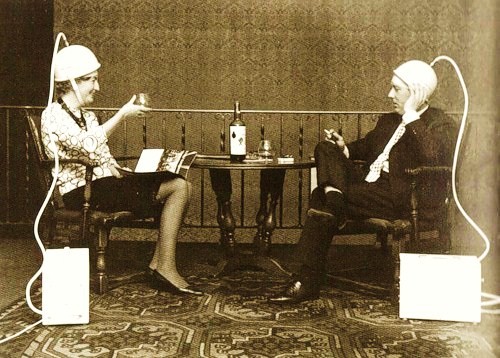There are many areas where billionaire investor Peter Thiel and I disagree–he seems unconcerned about that–but we do concur that AI is more the solution than the problem. While I accept that smart machines could possibly be the ruination of humans, it seems very likely to me that we’ll become extinct without their continued development. (There are some other low-tech, out-of-the-box measures which might be useful in staving off our species’ collapse, but it’s highly improbable they’ll be implemented.)
In his new Financial Times piece, “Robots Are Our Saviors, Not the Enemy,” Thiel examines the more mundane economic costs of silicon brain drain. He extols the value of a man-machine hybrid, saying that robots will complement rather than replace human labor in many instances, though former employees of Blockbuster, Borders and Fotomat might disagree. And if driverless cars arrive anywhere near on schedule, there will be a whole new class of unemployed that wasn’t a useful complement. An excerpt:
“Unlike fellow humans of different nationalities, computers are not substitutes for American labour. Men and machines are good at different things. People form plans and make decisions in complicated situations. We are less good at making sense of enormous amounts of data. Computers are exactly the opposite: they excel at efficient data processing but struggle to make basic judgments that would be simple for any human.
I came to understand this from my experience as chief executive of PayPal. In mid-2000 we had survived the dotcom crash and we were growing fast but we faced one huge problem: we were losing upwards of $10m a month to credit card fraud. Since we were processing hundreds or even thousands of transactions each minute, we could not possibly review each one. No human quality control team could work that fast.
We tried to solve the problem by writing software that would automatically identify bogus transactions and cancel them in real time. But it quickly became clear that this approach would not work: after an hour or two, the thieves would catch on and change their tactics to fool our algorithms.
Human analysts, however, were not easily fooled by criminals’ adaptive strategies. So we rewrote the software to take a hybrid approach: the computer would flag the most suspicious transactions, and human operators would make the final judgment.
This kind of man-machine symbiosis enabled PayPal to stay in business, which in turn enabled hundreds of thousands of small businesses to accept the payments they needed to thrive on the internet.”
Tags: Peter Thie, Peter Thiel

